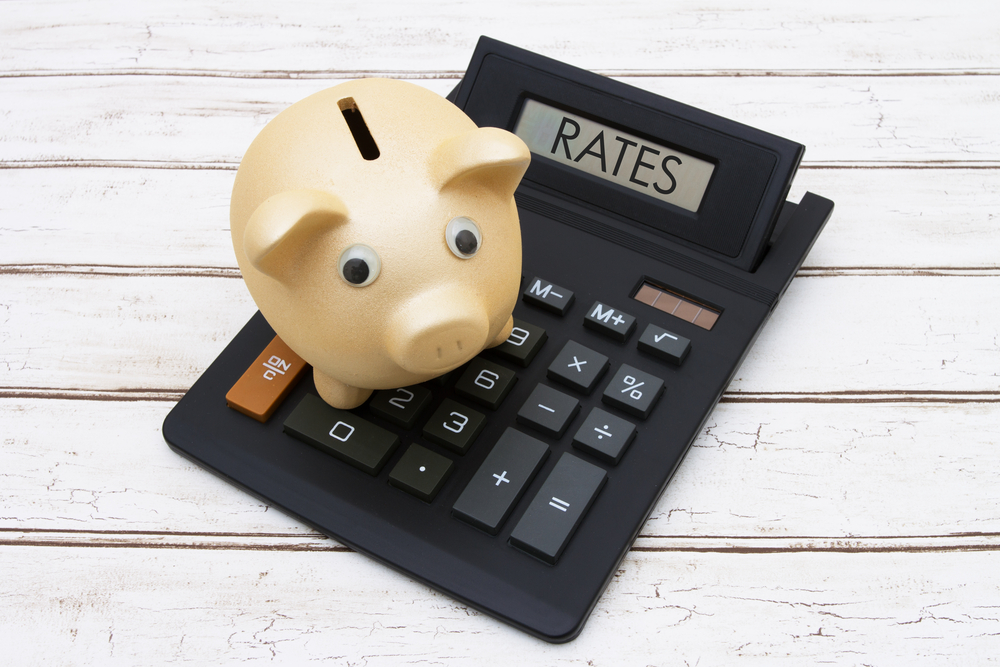Mortgages
Base rate rise: what it means for your mortgage

The Bank of England has today raised the base rate by 0.25% to 0.75% – the second increase in a decade.
This may be unsettling – if not wholly unexpected – news for borrowers on a variable or tracker mortgage.
Lenders are expected to waste little time increasing their rates in response to today’s hike.
That means thousands of homeowners could be paying more for their mortgage by as early as next month. According to Andrew Hagger of independent research site, MoneyComms, today’s hike could add the following to mortgage costs (20 year mortgage term remaining):
- £130,000 = extra £16 per month (£192 per year)
- £200,000 = extra £26 per month (£312 per year)
- £350,000 = extra £44 per month (528 per year).
Here, we ask three mortgage experts for suggestions on what borrowers should do:
‘Fix offers better value than trackers at present’
Lea Karasavvas, managing director at Prolific Mortgages, says: “As the uncertainty mounts regarding Brexit, I see the base rate only going one way.
“With 10-year fixed rates still available at circa 2.49%, rates are still unbelievably low and many people are living in a false economy in the belief rates will continue to stay this low. I do see incremental increases coming over time, and only really in one direction so I would suggest a fix offers better value than the trackers at present as the margin of differential is so minimal.
“The only real benefit of trackers over the majority of fixed products are that they are often penalty-free, giving them a little more flexibility, but I only see the base rate moving in one direction.
“For people sitting on a variable I would advise that they first check with an adviser as to whether they are able to change based on their criteria and to ensure there are no penalties in doing so, and if so, I would suggest it may be prudent to assess the market and look at the options available to them.
“Some people are still enjoying tracker products on incredible low margins from 10 years ago. I still have clients on products at 0.17% below base and on margins such as these I would still suggest there is value here. However more recent clients could be sitting on higher margins above base, and they could see better value locking in.”
‘Call to action rather than a call to panic’
Malcolm Wallace, director of Parsonage Financial Planning, says: “The announcement should be a call to take action rather than a call to panic. The first thing I would advise would be to check the documentation that outlines your initial mortgage offer as this should disclose an estimate of the cost of any increase.
“Homeowners who do have a flexible mortgage should carefully consider how much more they can afford towards monthly repayments and assess the bigger picture – for example, are there other areas that you can cut back on in order to make up the costs? Despite forward planning, the average UK household has limited flexibility when it comes to upping their mortgage, and if this is the case, now is the time to think about switching to a fixed mortgage.
“The prospect of switching from a flexible to a fixed mortgage may sound like a time-consuming and expensive task in itself, but this isn’t always the case. What most home owners don’t realise is that you can change to a fixed rate mortgage without the hassle of changing lender.”
‘Rate increase is a trigger to take action’
David Hollingworth of L&C Mortgages, says: “People on standard variable rate (SVR) mortgages are of course the most vulnerable to rate increases as they will see a rise in their monthly payment, despite already typically paying over the odds. Any rate increase is likely to act as a trigger to those borrowers who have simply not got round to reviewing their mortgage to take action. Shopping around for a new deal could offer the chance to not only make substantial savings, but also to protect against any further rate rises.
“Many borrowers are opting to fix their rate at the moment given how competitive the current rates are and against the backdrop of the potential for rising interest rates. Fixing the rate will do exactly what it says on the tin and give borrowers the certainty of payment and ability to budget with confidence.
“Given inflationary pressures on other household costs, being able to lock down the biggest outgoing will appeal to many. Fixed rates are on offer between two and 10 years although they will typically require borrowers to lock in their rate during the fixed rate period. It’s therefore important to think about how much flexibility might be required in future, as an early repayment charge can amount to thousands. We’re seeing more borrowers opt for the medium term by fixing for five years.
“Of course, mortgage rates may not hold steady in the wake of a rate rise. Fixed rates had already begun to rise before the last rate rise in November 2017 and there’s been further drift upwards since then. With a further rate rise that trend may continue, even though it may have already been priced in to a degree. It may therefore make sense to consider the options sooner rather than later to avoid disappointment.”